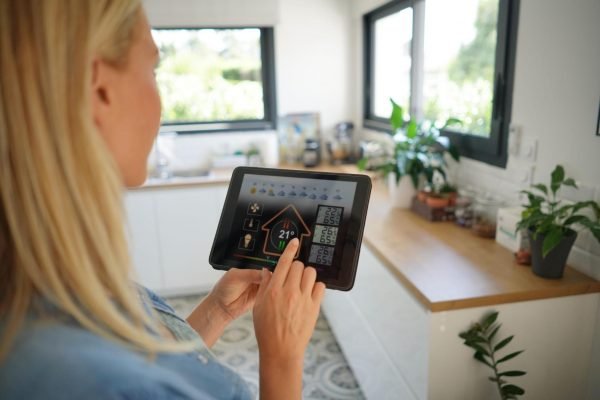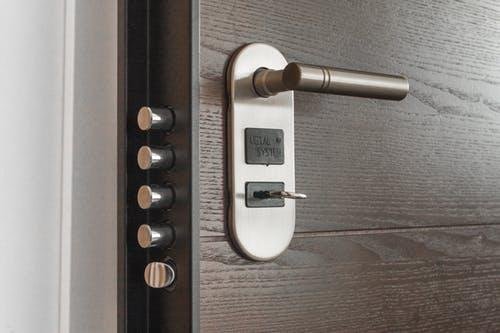Owning a home can come with many benefits. For starters, a home is an investment that appreciates over time, meaning that you can make a decent profit when you choose to sell it in the future. Likewise, it helps you build equity while giving you control over home-related costs. You also get to create your dream home without worrying that someone would not be pleased with it. As of 2021, the national homeownership rate was 64.8%, with first-time buyers making up 33%. It’s important to set your new home up to make it more comfortable to live in. However, your home may not come with certain features, making it imperative to get it yourself. That said, here are some things you’ll need to purchase for your living space.

- Home security system
Statistics reveal that approximately 3,370 burglaries occur yearly in the US, with 51% of homes suffering repeat burglaries. These statistics reveal the need to purchase a home security system. Indeed, home security systems serve as a warning to burglars to stay clear of your property. According to UNC Charlotte research, 83% of burglars investigate their target homes for signs of alarm systems, with half giving up when one is present. Moreover, it protects your family and property from disasters like burst pipes while giving you peace of mind.
Therefore, you want to install your security system before moving to your living space. Fortunately, many systems are DIY-friendly, so you can opt for these options. However, working with experienced security experts will also prove helpful, so keep this in mind. These professionals can provide an in-home consultation to determine the suitable one. Remember that the cheapest options may not offer you the total value, so prioritize your budget to accommodate the best types.
Adding another layer to your home security can be achieved by investing in personal defense tools like Tasers or stun guns. These non-lethal self-defense weapons provide an immediate means of protection against intruders. It’s important to note that while Tasers and stun guns can incapacitate an attacker temporarily, they require close proximity to be effective. Therefore, they should be considered as part of a larger home security strategy and not as the sole means of protection. Please also be aware of your local laws and regulations regarding the ownership and use of such devices.
- New door lock
If other people once inhabited your new home, it’d be best to change the locks of each door to enhance safety. You may not know how many key copies people have of the old lock, making your space less secured. Even if the locks were replaced in your absence, you can’t know that you have all the keys. Therefore, changing the locks will be the way to go. Depending on what quality you want, you can spend from $40 to $400 for a lockset. You can also opt for rekeying, which involves altering an existing lock’s springs and pins to fit new keys.
Before starting the process, it’s prudent to inventory all doors in your home to ensure that they are all catered for. If you wish to DIY, various online resources can help you out. However, you need a professional locksmith if your home is old or you’re not sure you can handle the project solo. Moreover, complex master key systems will be better installed by experienced professionals, so keep this in mind.
- Carbon monoxide detectors
The CDC revealed that approximately 430 people die yearly while 50 000 visit the emergency department due to accidental carbon monoxide (CO) poisoning. CO is produced by kerosene heaters, burning wood, portable generators, vehicle warm-ups, furnace, etc. CO is difficult to detect due to its odorless, tasteless, and non-irritating nature, making it very dangerous. When inhaled in large quantities, it can trigger nausea, shortness of breath, confusion, weakness, headaches, and loss of consciousness. Seeing the destructive nature of CO, it makes sense to install carbon monoxide detectors in your home.
These devices can quickly detect and ascertain CO amounts in your home, triggering an alarm to alert you of dangerously high levels. This will help you reserve the issue before it causes harm to you and your family. It’s essential to choose detectors listed under Underwriters Laboratory (UL) and place them near sleeping areas. As a tip, fix them where CO can reach and easily wake up people in your home. Once the threat is cleared, you need to detect the source of CO and fix it immediately to prevent it from repeating.
- Smoke detectors
The National Fire Protection Association reveals that a house fire occurs every 93 seconds. Other statistics indicate that seven people die in a home fire daily, while 32% who perished were asleep when the fire started. Indeed, fires can start at any time, making it important to install smoke detectors in your home. These devices detect and warn you of smoke in your home by sounding an alarm. This can prevent a fire outbreak, saving your life, family, and property in the process. It can also help firefighters locate the source of fire outbreaks in homes, making their efforts more focused and successful. Smoke detectors should be placed on your roof, as they easily detect the presence of smoke from that angle.
If you don’t have these helpful devices yet, then it’s prudent to consult smoke detector installation experts for the best results. As a tip, practice proper maintenance to ensure that it functions properly at all times. That said, test your alarms monthly and change the batteries if it isn’t functioning as they should. Also, vacuum your detectors once every six months to prevent dirt buildup and pest infestation. It’s also prudent to get a fire extinguisher to be better equipped in the event of a fire outbreak in your home. Learn how to operate it, as this will prove helpful when you’re alone at home when you are caught in a fire.

-
Safe
Although your home is a haven, it wouldn’t hurt to install a safe. While you don’t wish to be burglarized, your documents, money, jewelry, and other valuable items would not be tampered with. Moreover, most safes are made to withstand fire and water, and you can rest assured knowing that your valuables won’t be damaged during a flood or fire outbreak. Various safes have different features and functions, so keep this in mind. For example, gun safes are ideal for gun owners, providing secure storage and quick access when needed. For those prioritizing personal defense, finding the best compact handgun vault can offer both security and immediate accessibility. Fire safes will benefit those who keep valuables at home, protecting them from environmental damage. Various combination safes are also available, so feel free to leverage them. As a tip, always go for quality to get the most out of your safes.

Speak Your Mind